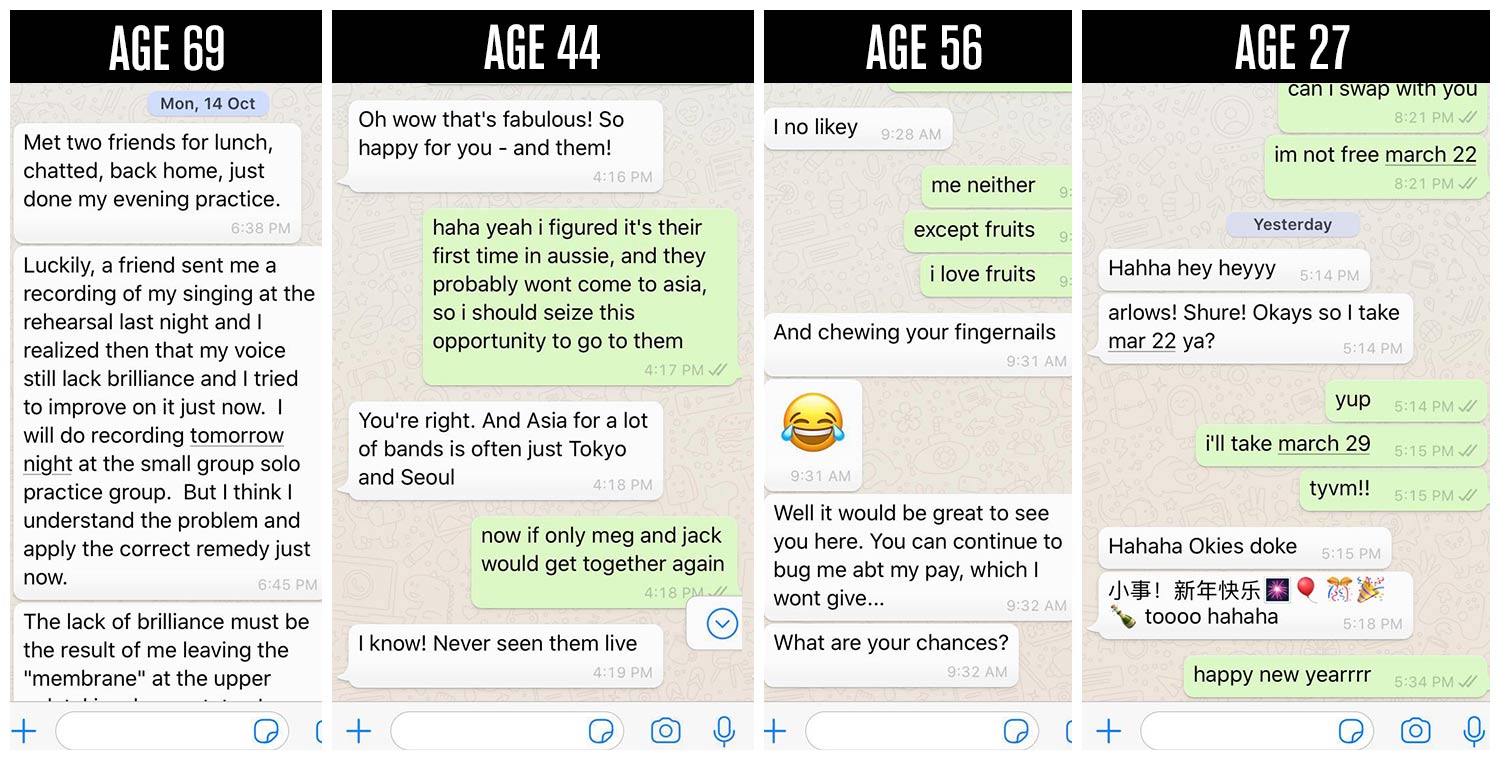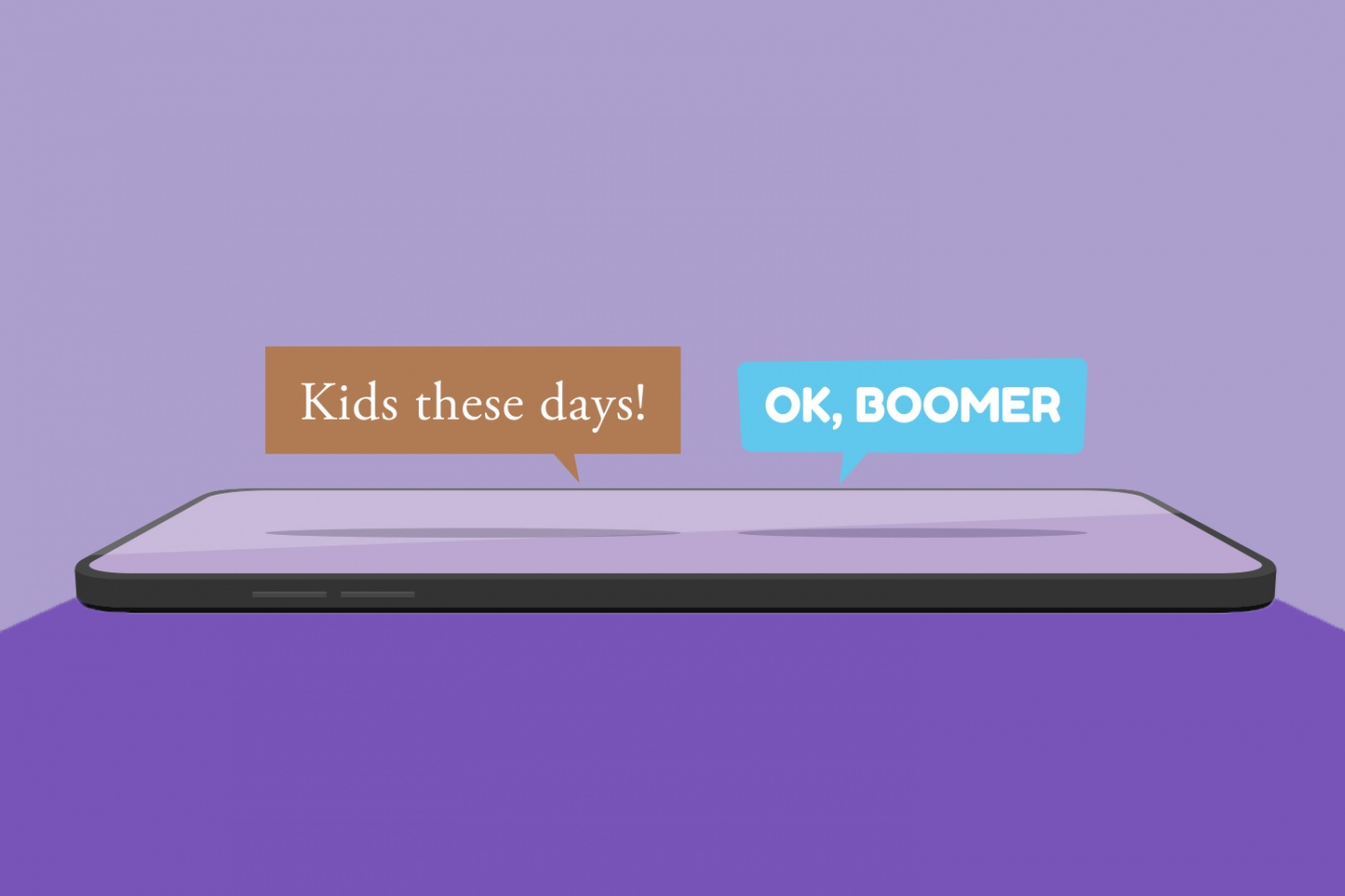Why Do Boomers Text the Way They Do?
Spelling mistakes. Short form, SMS-style language. Endless strings of ellipses. It seems that the majority of baby boomers follow a certain texting style, distinct from that of other generations, entailing the said elements and then some. A more comprehensive list includes capitalising words that should not be capitalised, broken English, Christian-themed content, blurry images, awkward close-up selfies, mistakenly using commas instead of full stops, signing off with their names at the end of a short text or comment, and the excessive use of emojis without a trace of irony.
Inspired by these marked characteristics, a Facebook group was created on 1 December 2019, where users (predominantly millennials) engage in virtual roleplay and interact with each other online under their respective baby boomer personas. They post updates, share articles, leave comments, and upload pictures and videos onto the page as if it were a regular Facebook feed.

While it may appear as a snarky, flippant and playful experiment, some have admitted to getting rather serious about it, spending a prolonged period of time to get the tone of voice, syntax, and “stylistic choices” down to a tee (even going against their own usual texting habits). Interestingly, the generation of content for comic relief has also triggered an informal anthropological study into the way boomers think, behave, and therefore, text—making way for a more empathetic perspective that inspires understanding and compassion, as opposed to judgment and hostility. Consider it an antidote to the alienating ways of the “Ok boomer” movement.
Before we continue, let’s play a little game. Here is a snippet of four different conversations I had with four individuals from varying age groups. There’s a 27-year-old amateur drummer, a 44-year-old mother of one, a 56-year-old sub-editor, and a 69-year-old retiree. Who belongs to Exhibit A, B, C, and D? Once you’ve made an educated guess, mark the differences between each texter and read till the end for the final reveal.

Baby boomers typically refer to those aged between 55 and 75, with members of Generation X following closely behind at ages 40 to 54. Although the general consensus tends to lump boomers into the vaguer category of “middle-aged folks”, not all boomers are equal. Still, enough of them reflect the same texting style to warrant an inquiry into the reasons why they “speak” the way they do, and how they differ from millennials.
A possible explanation points to the varying background of these two age groups. Most youths grew up with social media, which gives prominence to the concept of having a public and a private persona. Your Facebook profile offers a platform to present a curated version of yourself, one that you deem the most respectable or socially acceptable by your contemporaries. As the younger generations are more entrenched in texting culture, they have grown to value the nuances in text messages, and embrace texting as a way to express their individuality. For instance, communicating in small caps may convey a cool, blasé attitude, while sending messages with proper punctuation and capitalisation conveys dignity, decorum and intelligence. They also read into texts closely, considering it an act of passive aggression when one responds to a lengthy message with a “K”, rather than an “Okay”.
A baby boomer, on the other hand, focuses more on practicality, viewing texting as a tool to convey information (at times, emotion), never personality. Every emoticon used is a direct representation of how they feel. The dark moon emoji may be popular among youths as a way to show disapproval or sardonicism, but it would evade comprehension by older folks. Likewise, no fair-skinned 50-year-old would use a brown thumbs-up emoji just for the fun of it, because it would be an inaccurate portrayal of themselves.
Similarly, expressions of irony, sarcasm or humour through text are likely to go over the heads of older users, who have no concept of what “dank memes” are. They might encounter a post like this—“I can’t even. I don’t know what to do with myself. Ariana Grande just retweeted me.”—and assume there is something legitimately wrong with the author and advise them to calm down.
Let’s face it, baby boomers aren’t the most tech-savvy bunch. They’re not used to digital keyboards or typing on small, virtual buttons, and tend to take a longer time to craft a message, favouring abbreviations and short forms over spelling out whole words (“Thks”, instead of “thanks”).
The rare few who sign off messages and comments with their names may also be borrowing from their snail mail habits. Think about the baby boomers who during their day mostly relied on rotary telephones to communicate. Bad grammar and spelling mistakes are common too, as many do not speak English as their first language.
Regardless of age, what’s more important is the background and lifestyle of the texter, how integrated they are to youth culture, how open-minded or traditional they are, and how receptive they are to new forms of communication. Remember the four participants of our little game?

How many did you get right? Despite the widespread existence of boomers that exhibit classic aforementioned boomerisms, you can’t discount the uniqueness of the individual. A 56-year-old who edits magazines for a living, for example, is bound to communicate in perfect English. And just like how not every 20something is an ardent consumer of gifs and memes, not every millennial is going to care that much about the way they text either.


